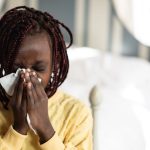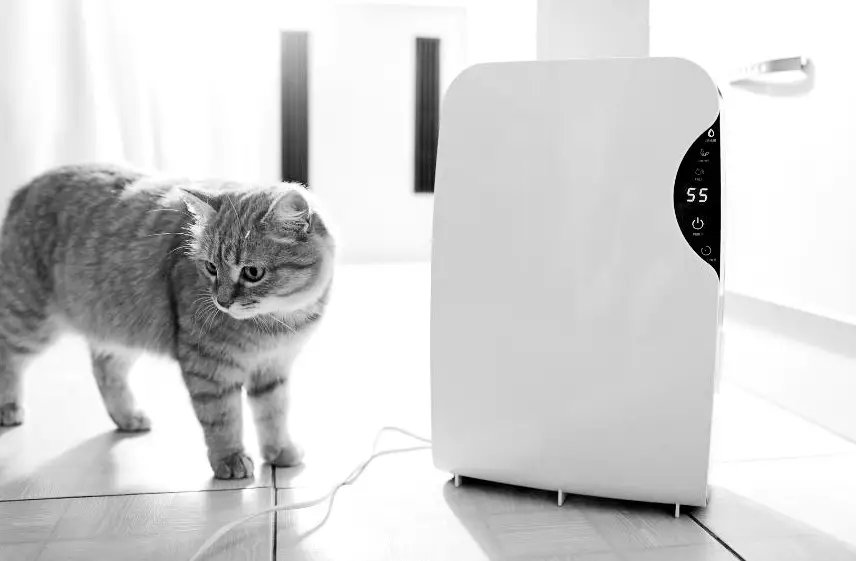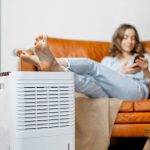Table of Contents
Dealing with Allergies in High Humidity Environments
High humidity can worsen allergy symptoms for many people. When the humidity is high, mold spores and other allergens like pollen and dust mites thrive. This increased level of allergens in a humid environment can trigger allergic reactions like sneezing, runny nose, watery eyes, and other uncomfortable symptoms.
Humidity levels measure the amount of moisture in the air. The higher the humidity, the more water vapor is present. Ideally, indoor humidity should be kept between 30-50%. Humidity levels above 50% provide the perfect moist conditions for mold, bacteria, viruses, and allergens to multiply.
So why exactly does high humidity make allergies worse? There are a few key reasons:
- Increased allergen levels – Mold, dust mites, and other allergens thrive in humid conditions. Higher humidity means more of these allergens in your environment.
- Allergens stay airborne longer – When the air is moist, allergens like pollen and dust can remain suspended in the air longer before settling on surfaces. This puts you at prolonged exposure to the allergens.
- Dry airways – Humid air can make the linings of airways like your nose and throat drier and more inflamed. This inflammation makes you more reactive to allergens you breathe in.
- Opens pathways for allergens – Dry, inflamed airways create cracks and openings that make it easier for allergens to penetrate deep into your system when you inhale them.
If you suffer from seasonal allergies, pay attention to daily humidity reports in your local weather forecast. On high humidity days, be extra diligent about avoiding allergy triggers and managing your symptoms.
Tips for Controlling Allergies in High Humidity
While humidity is difficult to control outdoors, you can take steps to minimize allergy suffering on humid days:
- Check daily pollen and mold counts – This helps you anticipate bad allergy days based on the levels of these allergens.
- Limit time outdoors when humidity is high – This reduces your exposure to pollen and mold.
- Shower after going outside – Washing pollen off your skin and hair prevents it spreading through your home.
- Use dehumidifiers – Reducing moisture indoors denies mold and dust mites the humid habitat they need to multiply.
- Run air conditioners – Air conditioning removes moisture from the air while filtering out some allergens.
- Change AC and furnace filters – Regular filter changes keep AC and heating systems from circulating dust and allergens.
- Vacuum often – Frequent vacuuming removes dust and dander that could trigger allergy flares.
- Limit indoor plants – Leafy, moist indoor plants provide ideal mold breeding grounds.
- Use HEPA air purifiers – HEPA filtration systems actively remove allergens and irritants from the indoor air.
- Wash bedding weekly – Regular washing keeps dust mites from colonizing bed linens.
Being proactive about controlling humidity and allergens in your home can help minimize allergy suffering, even when the outdoor humidity is high.
 Medications for Allergy Relief
Medications for Allergy Relief
When environmental precautions aren’t enough, medications can provide allergy symptom relief on high humidity days. Common options include:
- Antihistamines – Antihistamine pills, liquids, or nasal sprays block the symptom-causing effects of histamine. They can relieve runny nose, sneezing, watery eyes, and itching.
- Nasal corticosteroids – Corticosteroid nasal sprays like Flonase and Rhinocort reduce inflammation in the nasal passages. They are highly effective at controlling runny nose, congestion, and sneezing.
- Leukotriene inhibitors – Oral medications like Singulair block leukotrienes, immune chemicals that trigger allergy symptoms. Leukotriene inhibitors are especially useful for nasal congestion.
- Immunotherapy – Allergy shots gradually make your immune system less sensitive to specific allergens like pollen or dust. Immunotherapy is a long-term solution that can reduce allergy medication needs.
Talk to your doctor about prescription and over-the-counter allergy medication options that are right for your symptoms. Having an arsenal of effective allergy medications can help you manage symptoms proactively on humid, high allergen days.
Allergy Relief Products
In addition to medications, specialized products marketed for allergies can also help control symptoms:
- Neti pot – Rinsing nasal passages with a saline solution can remove pollen and relieve congestion.
- Nasal strips – Adhesive strips like Breathe Right open nasal airways to improve airflow and reduce congestion.
- Air purifiers with HEPA filters – HEPA air filters actively remove dust, pollen, pet dander and other allergens from the air.
- Vacuums with HEPA filters – HEPA vacuums trap allergens like pollen and dust so they are not blown back into the air.
- Allergen-proof bedding covers – Dust mite covers create a barrier between you and these microscopic allergens in your bed.
Targeting allergens with specialized products can be an useful part of your humidity-beating allergy relief strategy.
When to See an Allergist
For people with severe seasonal allergy symptoms that don’t respond well to over-the-counter treatments, consulting an allergist can help identify the best relief options. An allergist may recommend specific allergy testing to pinpoint your triggers. Skin prick testing and blood tests can reveal exactly which pollens or environmental allergens provoke symptoms for you personally.
Allergy testing results enable the allergist to select allergy medications and immunotherapy that target your specific allergens. Getting the right prescription medications and/or custom allergy shots can provide more effective relief than general over-the-counter allergy products. Seeing an allergist is especially recommended if your allergies make it difficult to get through certain seasons or if symptoms interfere with work, school or regular daily activities.
Creating an Allergen-Free Sleep Environment
Since exposure to allergens while you sleep can significantly disrupt rest, focusing on the bedroom is important. Recommended tips for reducing nighttime allergen exposure include:
- Encase mattresses and pillows in allergen-proof covers.
- Wash sheets and blankets in hot water weekly.
- Ban stuffed animals and fabric furnishings which attract dust.
- Use HEPA air filters and avoid humidifiers.
- Keep pets out of the bedroom if you are allergic.
- Vacuum carpet and floors frequently using a HEPA filter vacuum.
- Consider allergen-blocking window coverings.
- Dust frequently with a damp cloth.
Creating an allergy-friendly sleep sanctuary gives your body a reprieve, so you don’t face high allergen exposure around the clock.
FAQ
Why does high humidity make allergies worse?
High humidity provides the perfect moist conditions for mold, bacteria, viruses, dust mites, and other allergens to thrive. The increased levels of these allergens coupled with dry, inflamed airways makes people more reactive to allergens in humid conditions.
What humidity level is best for allergies?
Ideally, indoor humidity should be maintained between 30-50% to discourage allergen growth. Use air conditioning and dehumidifiers to keep indoor humidity in this range.
What foods are good for allergies?
Foods high in quercetin like apples, berries, onions, and broccoli are believed to have natural antihistamine properties. Probiotic foods can also reduce inflammatory responses tied to allergies.
What home remedies are good for allergy symptoms?
Saline rinses, nasal strips, air purifiers with HEPA filters, vacuuming with HEPA vacuums, bathing after going outside, limiting time outdoors when pollen and mold are high, and controlling indoor humidity levels can all help manage allergy symptoms at home.
What medications are used to treat allergies?
Common allergy medications include antihistamines, decongestants, nasal corticosteroid sprays, leukotriene inhibitors, and immunotherapy allergy shots. Talk to your doctor about prescription and over-the-counter options that are appropriate for your symptoms.
How can I reduce allergens in my bedroom?
Use allergy covers on mattresses and pillows, wash bedding in hot water weekly, remove fabric furnishings, use HEPA air filters, keep pets out of the room, vacuum and dust frequently, and consider allergen-blocking window treatments.
When should I see an allergist for allergies?
See an allergist if your allergy symptoms are severe and not controlled well with over-the-counter treatments or if allergies interfere with work, school or regular activities. Allergists can identify specific allergen triggers and provide prescription treatment options.
Are humidifiers or dehumidifiers better for allergies?
Dehumidifiers are better for reducing allergy triggers like mold, dust mites, and pollen. Humidifiers actually increase humidity and can make allergies worse.
Can air purifiers help with allergies?
Yes, air purifiers with HEPA filters are highly effective at removing allergens like pollen, pet dander, mold spores, and dust from the air. Reducing circulating allergens can provide relief, especially in the bedroom.
In Conclusion
Coping with allergies can feel like an uphill battle when humidity is high and allergens are rampant in your environment. But being proactive about monitoring forecasts, limiting exposure, controlling humidity, using air filtration, and finding the right mix of medication and home remedies can help you manage symptoms. Consult an allergist if you need prescription treatment options to get relief. With the right plan, you can breathe easier all season long, even when humidity hangs in the air.
The American Academy of Allergy, Asthma & Immunology (AAAAI) provides excellent resources on managing allergies and limiting allergen exposure at home.








